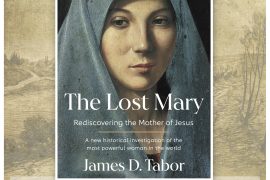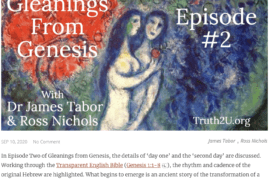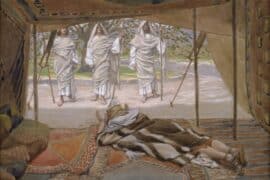From Mesopotamia to Egypt, women in the ancient world were considered property — valuable property, but property nonetheless. And it’s true of the Bible’s view as well. Yes, there were biblical women who flourished in spite of the patriarchy, women like Ruth, Esther, Lydia and Priscilla. But women in the Bible were normally viewed as second class, if even that.
As some of you know, I have been guest posting on Bart Ehrman’s blog and responding to many dozens of questions that his readers have been posing to me regarding Paul, based on my newly published book, Paul’s Ascent to Paradise. You can check out some of the comments and my responses at the site–and I hope you will subscribe if you have not: https://ehrmanblog.org/pauls-ascent-to-paradise-guest-post-by-james-tabor/. One of the questions a reader posed recently was whether I thought Paul’s very assertive and uncompromising declaration about women in 1 Corinthians 14:34-35 might be an interpolation–presumably because it sounds so restrictive and chauvinist. In other words, a later editor would have inserted this passage to bring it into conformity with similar passages in 1 & 2 Timothy and Titus about the subjection of women to men, that scholars consider written or edited after Paul’s lifetime by some of his devotees–writing in his name. The passage reads:
The women should keep silence in the churches. For they are not permitted to speak, but should be subordinate, as even the law says. If there is anything they desire to know, let them ask their husbands at home. For it is shameful for a woman to speak in church.
You can read my response at the blog site but I explain that I absolutely do not think this passage is added later, but rather it is written by Paul and reflects his views. See, for example, what he writes a bit earlier in 1 Cor. 11:2-16. In both cases he dogmatically asserts that no other view is to be entertained, and what he is writing is the “command of the Lord,” echoed in the Torah of Moses. Although, as I explain, in my book, Paul and Jesus, I think Paul believed very soon the gender roles of the Creation would shift, as “the form of this world is passing away,” nonetheless, in the present age, the subjection of women to men was part of the God ordained order of things (1 Corinthians 7:31. Unfortunately for women, the end of the age never came and the church was left with the “beloved apostle” setting forth standards that have led to untold grief, loss, and horrors, in terms of how women were viewed throughout Christian history. Yes, as I often say, Paul has shaped all we think about everything.

I want to refer my readers to a piece published in The Huffington Post, written by Christ Rollston, professor of Ancient Near Eastern Studies at George Washington University, that stirred up a lot of controversy when it was first published, causing Chris to even lose his job at Emmanuel Christian Seminary in Tennessee. As Dylan once wrote, “money doesn’t talk it screams.” If you Google “Chris Rollston marginalization of women” you can read all the stories at the time. There was quite a stir out on the internet, and many of us came to Chris’s defense, both in the name of academic freedom as well as good solid biblical scholarship. Having grown up in the same Campbellite “Church of Christ/Christian Church” tradition as Chris, I was particularly sympathetic to his plight. You can read Chris’s original piece here: “The Marginalization of Women: A Biblical Value We Don’t Like to Talk About.” Chris is, of course, well aware of possible exceptions, including efforts on the part of some biblical writers to push against this cultural “norm” of antiquity, but what he highlights is important for both Jews and Christians to come to terms with. At the end is an impressive slideshow you won’t want to miss, with some interesting artistic portrayals of heroic biblical women.








Comments are closed.